
In 2023, CAN reached out to the Business Design Centre to alert them to the fact their upcoming conference will be funnelling money into some of the world's worst companies for human and environmental abuses. We were resoundingly ignored. We held an action outside the Centre for 3 days in the freezing cold to speak with all the investors going in, but the Business Design Centre kept its head in the sand.
So, at the end of 2023, we contacted B Labs, the company behind the 'ethical' B Corp status. We followed B Labs' complaints process after it materialised that the Business Design Centre (conference centre in London) was using B Corp status to greenwash hosting Europe's largest investment conference for mining around the world. We felt that the Business Design Centre should have to choose between hosting exhibitors accused of human rights and environmental abuses, or enjoy B Corp status. We hoped, faced with this choice, Business Design Centre would drop the conference - helping reduce the UK's support for coal and mining around the world, a key aim of ours...
...But B Labs reply, after 6 months, disappointed us with no commitment to take action on what is clearly incompatible with the "high standards of social and environmental performance" that B Corp status promises customers. So we - or rather, our supports and the public - took action!
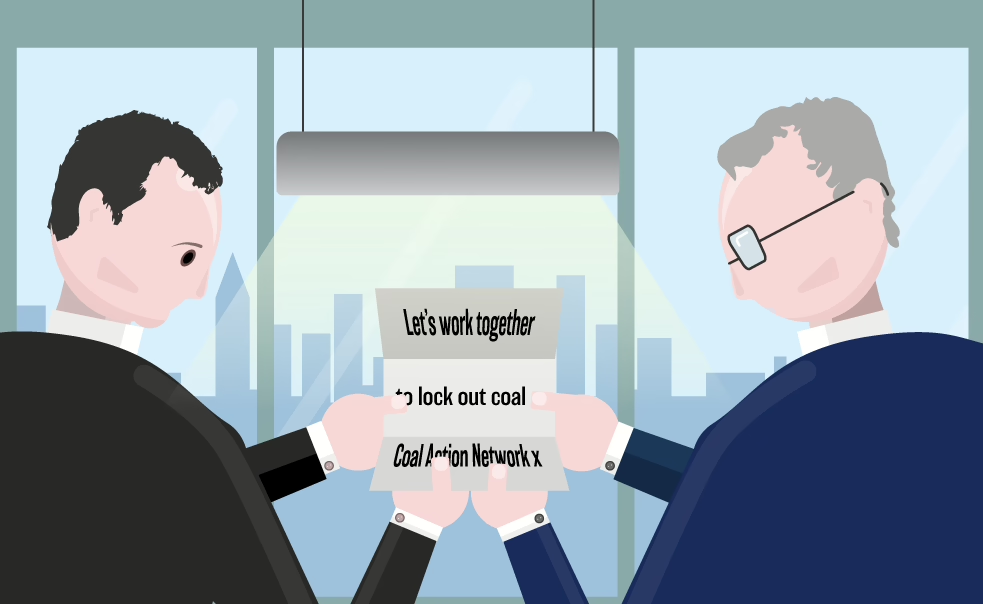
As B Labs doesn't seem bothered was the public says, we asked supporters to contact other B Corps - who are effectively B Labs customers. Almost 20,000 emails were sent to over 60 B Corp status companies, asking them to take a stand with us, and for what their B Corp status is meant to represent. Emailers politely asked these companies to contact B Labs and ask them to make the Business Development Centre stop greenwashing its promotion of mining with B Corp status. We had a great response with companies wanting to defend their investment in B Corp status and expressing dismay that B Labs would extend B Corp status to a company acting so clearly against the principles of environmental and social care.
"xxxx have raised your concerns with B Corp"
"I am frustrated about the event, but I am really angry at the greenwash and hiding of the even"
"I ask that B Labs take prompt action to protect the reputation of the B Corp trademark that we pay for and showcase on our website... last year some of the worst mining companies in the world gathered under the B Corp trademark. This is appalling and I hope you understand how important it is to put a stop to this."
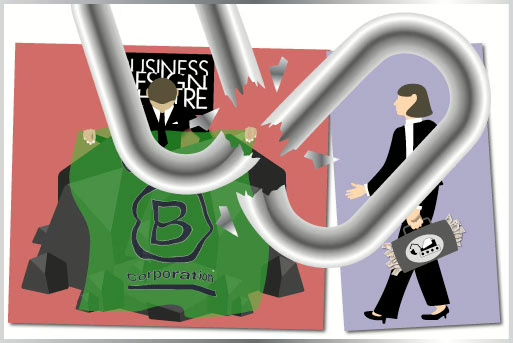
The B Labs team finally responded to some of these B Corp status companies with:
"As of 18 November this year, companies looking to certify, or recertify, will be subject to a new framework that more closely considers the nature of the relationship between the certifying company and their client’s harmful practices. We’ll ensure the Business Design Centre is aware of this new framework."
We still think B Labs could - and should - do more to encourage the Business Design Centre to drop the annual 'Mines and Money Conference' - but this is, at least, a start. It was great to see supporters and more ethical companies join together to challenge greenwashing.
Stay tuned to hear what we plan in 2025 to turn up the heat even further on the Business Design Centre, and all the ways that the UK continue to support coal mining and use around the world.
Coal Action Network has been campaigning for a ban on new coal mining for years, and met with numerous MPs in the lead-up to the 2024 UK General Election. Together with our supporters, we celebrate this clear win for us and for all the communities that won't now suffer noise, dust, and traffic pollution from nearby coal mining. As the first G7 country to ban coal mining, it also sets an example to other G7 countries to follow.
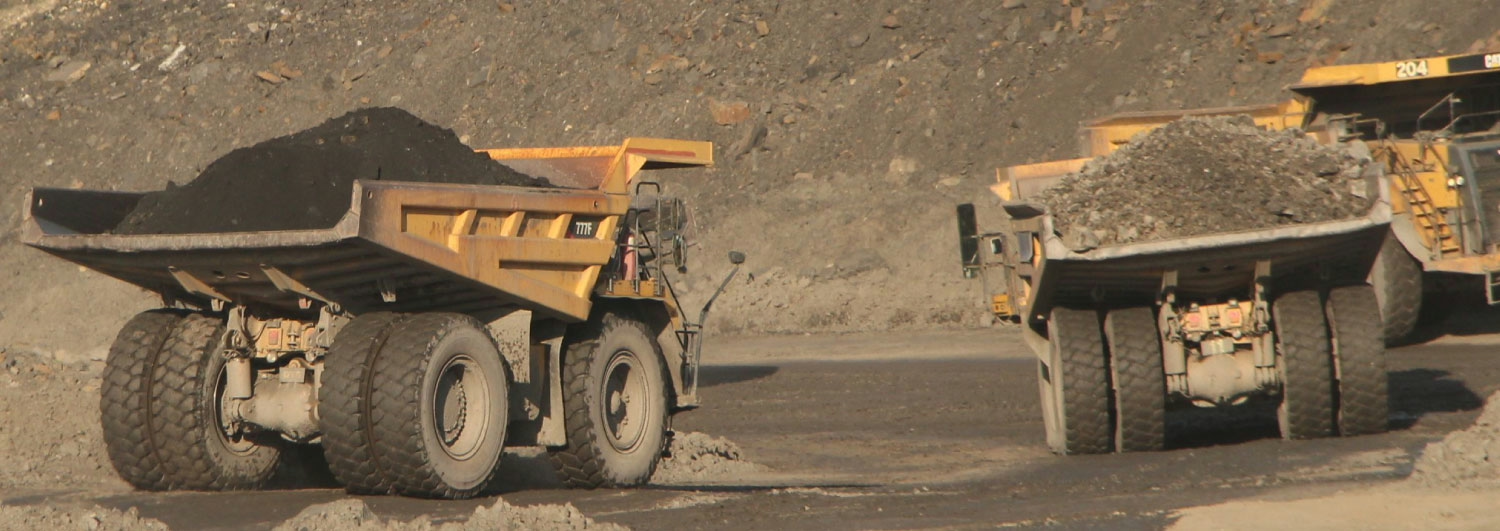
The UK Government has laid a Written Ministerial Statement confirming that it will introduce legislation to "restrict the future licensing of new coal mines", by amending the Coal Industry Act 1994, "when Parliamentary time allows".
The UK Government's press release is entitled "New coal mining licences will be banned". Here at Coal Action Network, we thinks it's great that the UK Government is following through on its historic manifesto pledge to rule out new coal mining throughout the UK. Following on the coattails of the UK’s exit from coal-fired power generation, this commitment bolsters the UK’s international reputation in leaving behind the world’s dirtiest fossil fuel. We hope to work with the UK Government to ensure no loopholes are carried into the final wording, and to leverage similar commitments in other G20 countries

The scientific consensus is that we need to decarbonise heavy industry. Steelworks are amongst the worst carbon emitters. Both of the UK steelworks using coal have agreed to convert to electric arc furnaces, a process which sadly requires far fewer steelworkers. When Port Talbot stopped its coal consuming blast furnaces at the end of September there was a poor deal for the workers. British Steel and the government must do better for the workers at Scunthorpe’s steelworks, expected to turn off the blast furnaces by the end of the year.
Former steelworker, Pat Carr, spoke to Anne Harris from Coal Action Network about the financial support offered to workers when the Consett steelworks closed in 1980, and they discussed what can be done better, in workplaces like Scunthorpe steelworks.
Read the full article, in the Canary Magazine from this link
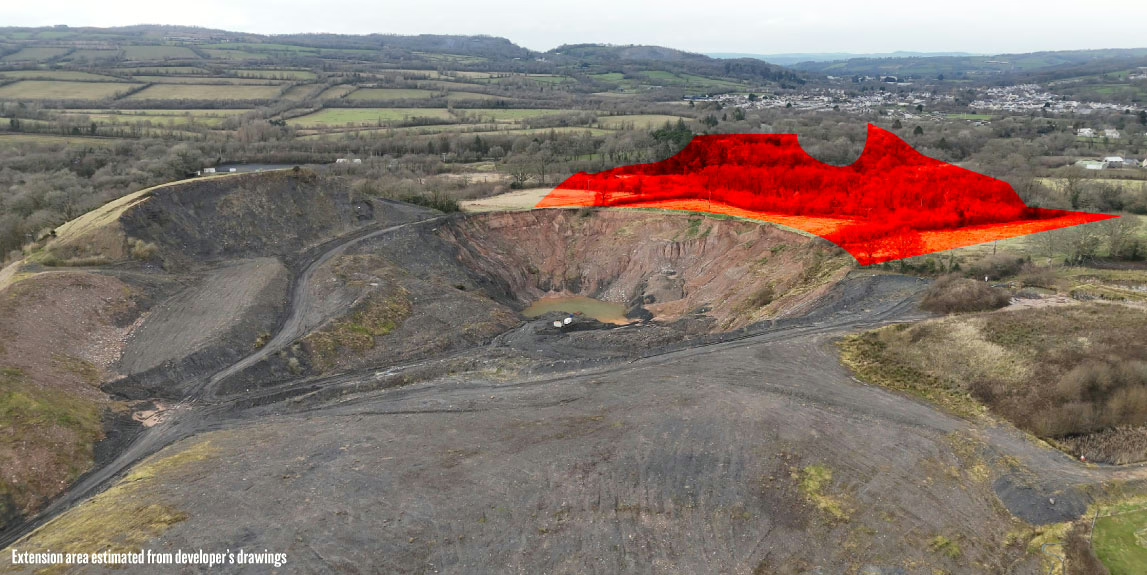
Bryn Bach Coal Ltd is the coal mining company that operates the Glan Lash opencast coal mine, which has been dormant since planning permission expired in 2019. In 2018, it applied for an extension which was unanimously rejected by planning councillors in 2023. Undeterred, Bryn Bach Coal Ltd is trying again! This time with a slightly smaller extension of some 85,000 tonnes rather than 95,000 tonnes. Check out the company's application and public responses so far.
According to UK Government industrial coal conversion factors, even the reduced Glan Lash coal mine extension could emit over 270,000 tonnes of CO2 from the use of the coal, a further c18,000 tonnes of CO2e in fugitive methane gas from the mine itself, and an uncalculated amount in emissions from years of heavy machinery excavating many thousands of tonnes of coal, soil, and rock, then returning it again.
The CO2e of the methane and coal use alone is roughly the same as driving from the northern most point in Scotland down through the UK to Lands End in Cornwall… 887 THOUSAND times, or dumping 1 in 5 of Welsh households’ recycling for a year into landfill. Bryn Bach Coal Ltd would need to grow 4.8 million tree seedlings for 10 years just to sequester these estimated emissions, which – needless to say – it does not intend to do. Instead, 2.5 hectares of trees will be destroyed, at least some of which is listed ancient woodland. Whatever the company purports about the quality of its coal or who it would sell the coal to, this coal mine extension in a climate crisis is clearly inexcusable, and sends the wrong message nationally, and internationally. The site was originally supposed to be restored before 2018 but extension applications delayed that and resulted in the decline of nationally and internationally protected habitats, and irreversible loss of nature prevented from returning to restored habitats. It’s time to finally return this land to the nature that was uprooted from it over a decade ago, and avoid the mistakes of Merthyr Tydfil County Borough Council’s policy of appeasement towards Merthyr (South Wales) Ltd and the Ffos-y-fran opencast coal mine. Beyond the greenwash, this small opencast coal mine proposal contributes neither to the rich heritage of Wales, nor to its green and bright future.
Coal mining has long been a part of Welsh heritage but it would be wrong to suggest that a small 11-person private coal mine has any potential to make a positive contribution to the culture of the area… as over 600 letters from Carmarthenshire residents opposing the mine extension in 2023 indicates. As one South Wales resident said “Coal is our heritage, but it cannot be our future”.
The Glan Lash opencast coal mine was originally granted planning permission in 2012 on the condition that it would be restored by 2018. But an extension was approved by the Council in 2018 to mine until 2019, on the condition that the site would be fully restored by March 2020. But Bryn Bach Coal Ltd tried again to extend its coal mine in 2019, claiming it can’t honour its promise to restore the site until it gets a decision as it’d waste resources to dig up the earth it’d just filled in. Well, it’s application was rejected in 2023…and, over a year later, still no restoration.
Instead, Bryn Bach Coal Ltd is trying again to extend the coal mine, claiming “Due to the compact nature of the mine site only a limited area of progressive restoration will be possible before the completion of coaling.”. The extension would delay restoration yet again, this time by over 5 years. That’s 12 years of delays since restoration was originally promised to be completed by. And history indicates it’s likely Bryn Bach Coal Ltd would apply for yet another extension after this one – will the site ever be restored?
This clearly flies in the face of Wales’ MTAN 2 policy “As a part of any application for extension, the operator is encouraged to demonstrate that this does not delay progressive reclamation of the principal part of the existing site.”. It’s long overdue that Bryn Bach Coal Ltd makes good on its promise to the local community in Ammanford, as well as to the nature it destroyed and displaced in 2012, that it restores the site without further delay and to the agreed standard.
Our understanding is that of the 11 full-time jobs engaged in the coal washery and proposed coal mine extension, only 3 of those jobs would be new jobs. Eight of those jobs, as well as indirect jobs, are not dependent on the proposed coal mine extension, but rather on the washery which has been operating without Glan Lash coal for years. So, in reality just 3 new, time-limited, jobs in a declining industry are supported by the proposed Glan Lash extension – which cannot be considered to make any material ‘positive contribution to the prosperity of Wales’.
Bryn Bach Coal Ltd claims some of the closest residents live some 440 metres east from the centre of the Glanlash Extension Revised site. This is misleading – the closest residents live just 200 metres from the edge of the proposed extension’s void, with hundreds of tonnes of overburden dumped by large machinery within 180 metres of their back gardens. Wales’ MTAN2 policy is clear: “coal working will generally not be acceptable within 500 metres (m) of settlements”.
The closest residents to the existing site appear to live just 30 metres from its boundary, further jeopardising restoration works. MTAN2 policy requires “Strong evidence of the necessity for remediation, including the evaluation of options, is required to justify working within 200 m of a settlement, and the social and environmental impacts on the affected settlement must be carefully weighed.”.
The Marsh Fritillary butterfly is protected under the Wildlife and Countryside Act 1981 and its habitat is protected under the EU Habitats Directive. The butterfly is also a UK & Wales Biodiversity Action Plan Priority Butterfly Species. The proposed destruction of the Marsh Fritillary butterfly habitat to the north of the existing void at Glan Lash was one of the main reasons for rejecting the application to extend the coal mine in 2023. Despite the clear value and urgency given to this species and its habitat, the environmental impact assessment indicates that “During the seven years since the 2017 Marsh Fritillary site condition survey the habitat has received no management and has continued to deteriorate” (p74) under the ownership of Bryn Bach Coal Ltd. Restoration of this site was originally promised to be completed by 2017, but delays due to mining extensions have resulted in this deterioration. It would seem none of the “progressive restoration” described by Bryn Bach Coal Ltd has touched the most ecologically vital part of the site, and throws into question the company’s ecological stewardship and commitment to restoring the site to a high standard.
It could be read that the Bryn Bach Coal Ltd goes on to use the decline it’s overseen of this vital habitat as a bargaining chip to leverage approval of its new extension proposal that excludes this habitat from destruction, with its environmental impact assessment recommending “The early granting of planning permission for the mine extension would allow an early start to the proposed habitat restoration and management scheme which is becoming increasing urgent as time passes.” (p74). The urgency is of Bryn Bach Coal Ltd own negligence, and there is nothing preventing the company from addressing that urgency now. Indeed, its failure to do so until now, there is no reason to disbelieve the company’s claim that “The habitat will…subsequently be managed to maintain the habitat in good condition for the duration of the mining operation” (p6, Green Infrastructure Statement).
Trees can host nesting birds and protected bat-life, as well as be ecologically important in their own right. Therefore a thorough tree-by-tree assessment is needed – but despite proposing to destroy 80% of a woodland, the environmental impact assessment for the proposal admits the a woodland survey is incomplete: “It was not possible to gain access to measure all trees due to bramble or scrub growth around their bases… no bat-roost use of the central scrub woodland was found but it must be noted that direct-observation of these trees during the surveys was restricted by the impossibility of accessing the woodland” (p48, p50, p57).
Bryn Bach Coal Ltd claims the remaining 20% of woodland along the edge of the void will have its roots area fenced off, but this won’t protect the trees, or their roots, from the reduced availability of water resulting from the void excavated nearby.
Hedges are considered to have huge habitat value, providing essential wildlife corridors, and, as such, are protected by law in the UK. Bryn Bach Coal Ltd proposes ripping up over 440 metres of this critical wildlife habitat, admitting “all hedgerows within the application site qualify as Important Hedgerows under the Hedgerow Regulations 1996”. The company claims the hedgerows mechanically ripped out will be “subject to special treatment to permit their re-use during site restoration and, as far as possible” – but with no details of what that treatment is, and just how far that is possible, these claims are met with scepticism.
There is growing awareness, concern, and action around fugitive methane emissions from active and abandoned opencast and deep coal mines around the world. The methane is release from the act of mining, not from the use of the coal later. There is very little mitigation possible against fugitive methane emissions from opencast coal mining. Bryn Bach Coal Ltd, also fail to detail any mitigation measures for emissions from its site operations such as heavy machinery.
‘Monitoring’ or ‘measurement’ does not amount to mitigation, and it would be misleading to list that activity under any heading of mitigation.
There are shortcomings in the proposed replacement habitats, not least that new plantings are not equal to the established habitats and the mature ecosystems those habitats support. Last year, when Bryn Bach Coal Ltd applied to extend Glan Lash opencast coal mine, the Council’s independent ecologist also pointed out that equivalent biodiversity support from a newly planted woodland habitat (assuming it flourishes) will never catch up to that of the destroyed 2.52 Ha woodland habitat, had it not been destroyed – and that it would take 137 years to support for the existing ancient woodland currently supports. That’s because, habitats are living, evolving, and interdependent ecologies that gain richness as they mature. Simply a larger area does not necessarily equate to more habitat for the wildlife it is intended to support.
The idea of ‘replacing’ a habitat, often not even on the same site – but rather a site some distance away and across two roads – ignores that habitats are unique and are not interchangeable and criticisms of bio-diversity offsets. By way of crude analogy; someone who’s always lived in Ammanford would think much is lost if they were forced out of their home and community, told they must never return, and were moved into a flat in Aberystwyth instead.
One of the more fanciful claims within Bryn Bach Coal Ltd’s environmental impact assessment is that the wildlife, like the nationally protected dormice, would be disturbed by mining activity, get out of harm’s way, then navigate half a kilometre around the opencast coal mine, to the Tirydail coal tip restoration area…despite the fact that on page 59 of the same assessment, the report admits that dormice only travel up to a maximum of 250 metres from their nests.
Bryn Bach Coal Ltd claims “…the survey evidence and the records of casual observations indicate that there is no intensive or regular Badger activity within the application site boundary.” (p10, Green Infrastructure Statement) and “No signs of Badger were found during the surveys although the drier land is likely to occasionally be used by foraging animals.” (p4, Ecological Impact Assessment).
Yet, on a single visit in late 2022, a photographer captured fresh badger prints in mud along the very edge of the void at the Glan Lash site, and shared the photo with Coal Action Network at the time. Unless this was an incredible coincidence, it suggests there is regular badger activity into the very centre of the applicant site boundary, and that surveying has been inadequate.
Bryn Bach Coal Ltd claims multiple places that “The loss of the Site’s ecology is temporary” – but there is nothing temporary about the destruction of ancient woodland, hedgerows, and the lives that depend on these habitats. The company’s own environmental impact assessment only claims some of a select few protected species would translocated into an unfamiliar habitat with unknown survival outcomes. This idea of the nature, and lives within it, that will be killed by this extension is somehow ‘temporary’ because at some later point a new habitat will be installed which may host nature in the future is a peculiar fiction.
In 2023, the planning officer claimed that the negative visual impacts of the extension’s operational phase would be mitigated as they are ‘temporary and relatively short term’. Firstly, a period of 6 years may for many not be considered short-term. Secondly, Bryn Bach Coal Ltd could apply again for a further extension when this planning permission has expired, just as the company is doing now. Unless a further extension is ruled out in a binding way, relying solely on the timespan of this extension risks approving an overall period of coal mining that is unlikely to have been approved originally due to the timespan of impacts. The total timeline of mining impacts should therefore be considered, past and future together—rather than each time extension in isolation, or else decision making risks being based on incrementality rather than material planning considerations, balancing the total cost with the total benefit of the application.
Bryn Bach Coal Ltd claims that the coal is “premium” anthracite coal at every opportunity. But ‘premium’ isn’t an industry grade of coal, and the company doesn’t provide any independent mineral analysis to back up that claim. Furthermore, claims of quality often relate to the carbon content of the coal, with higher-carbon coal being considered higher quality. It does not mean that it is in any way environmentally better — in fact, higher carbon coal such as anthracite emits even more CO2 when burned.
Bryn Bach Coal Ltd goes on to purport that none of the coal excavated from Glan Lash would be burned, which is when the majority of CO2 is released. The company originally claimed 50% would be burned, then 25%, and now 0%...is it just saying what the Council wants to hear whilst knowing that planning permission in the UK cannot control who the company sells the coal to, or if it is burned? Once it has planning permission, Bryn Bach Coal Ltd can sell Glan Lash coal to whoever pays the highest price. Even if sufficient non-burn markets do exist for all of the coal mined from an extension to Glan Lash, it must be assumed that in the absence of any restrictions, Bryn Bach Coal Ltd will sell the coal to whichever market pays the highest price for it. Which market that will be in the future cannot be accurately predicted, so the prudence requires that the Council cannot accept the company’s claim that the coal from the Glan Lash extension will not be burned. Where Glan Lash coal is finally used may also be impossible to trace as the coal processing plant opposite the coal mine also processes coal from other coal mines in Wales and beyond.
This creates a problem for approving the application in light of the Finch Vs Surrey Council High Court judgement earlier this year, which found that when deciding a fossil fuel project, a Council must consider the downstream use of that fuel. This recent judgement also bears on the Planning Officer’s 2023 view that run-of-mill coal will be processed in the washery rather than the coal mine void, and is therefore excluded from consideration of the extension application (despite the fact that the washery is adjacent to the coal mine) so dust generated from processing the coal becomes relevant to MTAN2 paragraph 151.
Where non-energy generating industries continue to rely on coal, it is critical that these industries transition to alternatives as the UK’s decarbonisation progress begins to dangerously veer off the necessary trajectory to avoid catastrophic climate change. Feeding an abundance of readily available coal and maintaining the security of supply disincentives companies to invest in research and infrastructure to cut coal out of their processes, instead ‘locking in’ companies’ continued reliance. There are already known anthracite coal alternatives to water filtration such as sand, gravel, pumice stone, iron, aluminium, and manganese. Although some of these alternatives would also have serious localised environmental consequences, not all would – and none would cause the fugitive methane (a potent climate change accelerant) release, which is possibly the most significant difference between using anthracite coal or its alternatives.
To mine coal in the UK, a company requires both a full coal licence issued by the Coal Authority, and full planning permission granted by the Local Planning Authority.
Following an FOI request to the Coal Authority, we found out that the current licence to mine coal at Glan Lash appears to have been issued in 2019, and expire on 10th August 2025. Given the UK Government’s public and uncaveated commitment not to issue any new licences for coal mining, and that Welsh Ministers would subsequently need to approve it if it was issued, it can be assumed that mining at Glan Lash must permanently cease by the date of its current licence, which is incompatible with the 5.4 years of coal mining it’s proposing.
The 2023 planning officer’s report for the original extension proposal at Glan Lash claimed “the proposal would help to ensure that any coal being used from the site will have been won in a way that is conscious of health and safety regulations and worker conditions”. This statement relies on 3 unspoken and unevidenced assumptions:
Each of these assumptions would need to be investigated and evidenced before it is reasserted for the new Glan Lash coal mine extension application by the Planning Officer.
The UK is reaching a major milestone in its transition to clean energy, one that Coal Action Network has campaigned for since its inception in 2008 — the complete phase-out of coal power generation. From October 2024, Ratcliffe power station — the last remaining coal-fired power station in the country — will be permanently shuttered. It is a milestone that should be celebrated, and one that serves as an inspiration to other countries around the world to follow suit.
Coal has been a mainstay of the UK's power grid for over a century, both driven and sustained by British colonialism. At its peak in 1950, coal accounted for 97% of the UK's electricity generation. Since then, concerns over climate change and air pollution contributed to successive UK Governments pushing the world’s dirtiest fossil fuel out of the UK power mix.
Through a combination of policies, renewable technology alternatives, market forces, and public pressure, the UK has steadily reduced its reliance on coal power over the past decade. Measures such as the carbon price floor, restrictions on coal plant emissions, and the rapid growth of renewable energy sources like wind and solar have all contributed to coal's decline.
The phasing out of coal power entirely is a major victory for the environment and public health. Coal combustion is a major source of greenhouse gases, as well as harmful air pollutants like fine particulate matter, sulphur dioxide, and nitrogen oxides. By eliminating coal from the energy mix, the UK has taken a crucial step in reducing its carbon footprint and improving air quality.
Looking ahead, the challenge now is to ensure that the UK's energy system remains reliable and affordable as it continues to transition towards renewable sources. This will require significant investment in grid infrastructure, energy storage, and flexible generation capacity to balance the intermittency of wind and solar power.
Nevertheless, the end of coal power in the UK is a testament to the countless hours committed by both climate activists and local people who spent countless hours and risked their freedom campaigning to close the coal-fired power stations poisoning the air they breathe and trashing the climate we all rely upon. But the spectre of coal still looms with the UK continuing to mine and export coal abroad - in 2023 alone, UK exports of coal generated around 1.8 million tonnes of CO2. It is reckless and hypocritical to dump the dirtiest of fossil fuels on other countries whilst boasting that the UK itself has moved beyond coal.
Check out our current campaigns against ongoing coal mining operations in the UK.
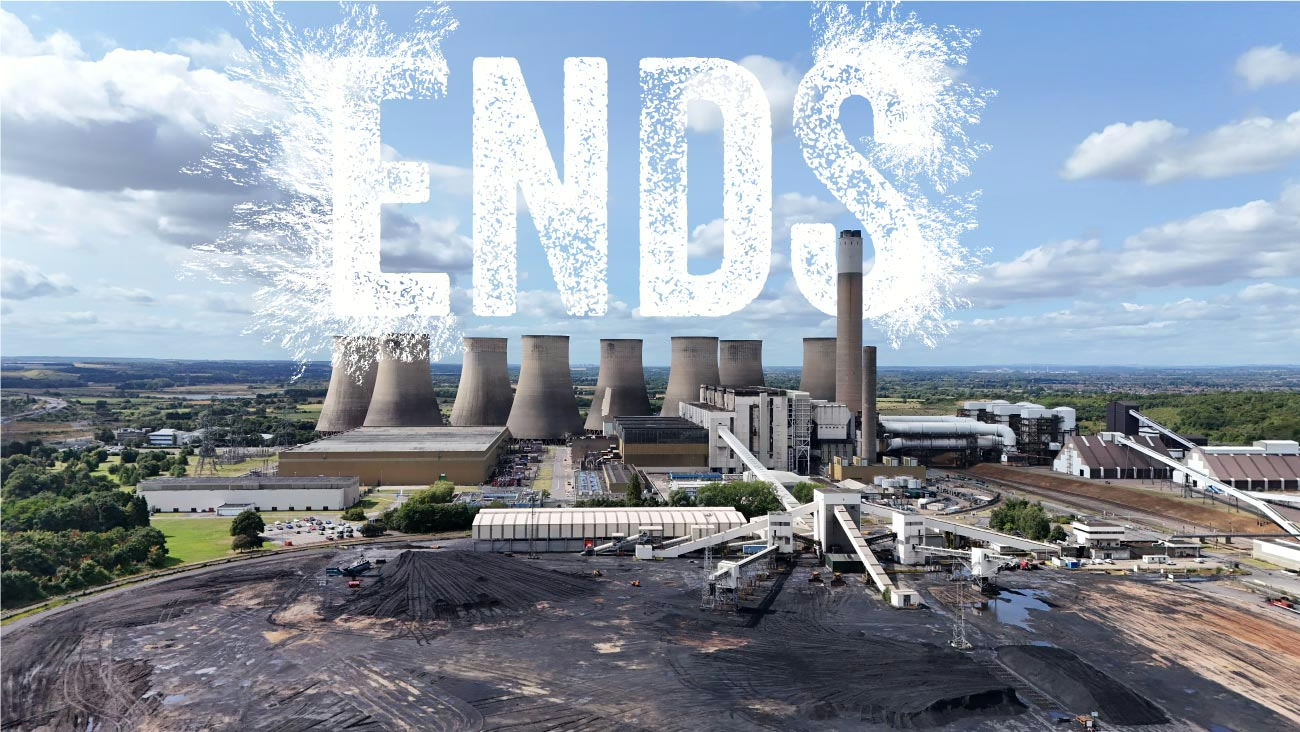


Coal powered Britain’s industrial and economic expansion during its Industrial Revolution. The abundance of coal discovered in Britain was a key factor that enabled the country’s early industrialisation, developing technologies and industries unfeasible elsewhere due to the lack of cheap energy sources. The British Empire’s expansion was partly driven by the need for other resources and labour to fuel this industrial growth, leading to the exploitation of natural resources in colonised regions.
The demand for coal intensified as the British economy expanded, and the empire’s infrastructure, such as steam-powered railways and ships, was largely powered by coal. This infrastructure extended the empire’s colonial expansion and exploitation of resources.
The British Empire’s decline after World War II coincided with significant economic changes in the UK. As the empire contracted, the UK faced economic challenges that necessitated a shift in industrial focus. The coal industry, which had been a cornerstone of the British economy during the height of the empire, began to decline as the UK sought to modernise its economy and reduce reliance on traditional industries. As the empire declined, the UK faced increased competition from other countries that were industrialising and developing their own energy resources. This competition, combined with the high cost of domestic coal production, made coal less economically viable on the global market. These market conditions made it possible for Margaret Thatcher, then Prime Minister, to rapidly and infamously dismantle coal mining in the UK, closing 159 coal mines 1984-1994.
The Clean Air Act of 1950 and later environmental policies further accelerated the decline of coal. The “Dash for Gas” in the 1990s, driven by the repeal of restrictions on gas use in power stations, further reduced coal’s share in the energy mix. In the 2000s, improvements to battery storage, increasingly cheaper renewable energy technologies, and carbon credit schemes, made coal progressively uncompetitive and unnecessary.
The decline in coal mining in the UK and the slower decline of coal use means the UK became increasingly dependent on coal imports, often from former colonies and poorer regions of the world. The colonial dynamics of this was increasingly centred by activists in the UK in grassroots resistance to ongoing coal dependency. Activists highlighted that the UK’s continuing use of coal in the UK had a double effect of inflicting on the global south; off-shoring localised environmental damage and displacement from coal mining, and then the worst consequences of climate change that burning that coal would return to those communities. The widely publicised climate camps and grassroots campaigning helped shape an increasingly negative public perception of coal. This, together with declining reliance on coal, coincided with a new UK Labour Government policy in 2009 that any new coal-fired power station would need to be fitted with carbon capture and storage. This technology was so expensive and largely ineffective that it effectively deterred any proposals for new coal-fired power stations. With existing and ageing coal-fired power stations coming to the end of their operating lives over the 15 years that followed, and now no coal-fired prospects to replace them, the Conservative Government that inherited this decline set in motion by the previous Government’s policy, branded it a new climate commitment to remove coal from the UK’s energy mix by 2025, later brought forward to 2024.
That brings us to Ratcliffe-on-Soar, that UK’s last coal-fired power station, fated to close at the end of September 2024, ending an era of coal-fired power generation in the UK. Coal used for other industrial purposes such as steel manufacturing and cement production are also a focus of decarbonisation efforts and public subsidy. As the UK moves away from the coal it used to rely upon, existing coal mines in the UK – most notably Aberpergwm, which is licenced to operate until 2039 – would need to export its coal to maintain sales. This could risk returning to a colonial dynamic where the UK benefits from dumping resources on developing countries that are considered unfit to use domestically due to air pollution and other factors.
Published: 17. 09. 2024

The public consultation window for the National Policy and Planning Framework represents the first opportunity since the new UK Government was formed to stop any new coal mine application winning planning permission across England. This sweeping change would go a long way to ruling out any new coal mines in the country.
For the last year we have been working behind the scenes to persuade political parties to commit to banning new coal mines in the UK. Thanks to our work, 5 major parties in Parliament committed to this in their manifestos, including the new UK Government.
One of the first actions the new Government is taking is to reform the National Planning Policy Framework. Their main focus is on building more houses and renewable energy projects. But one part of the NPPF advises local planning authorities on whether they should grant permission to applications for more coal extraction. Currently, the guidance is vague which and open to expensive legal challenge from mining companies which can make planners wary to refusing permission to new coal mine applications.
We know new coal extraction must be stopped, and we want the UK Government to ensure that happens in this reform by providing the clear direction planners need to confidently say NO to new coal mine applications.
The Government is running an open consultation on their proposed reforms until September 24th. The more folks who write in, the harder it'll be for the UK Government to ignore your collective call to draw the line in the sand right here, right now. Help us end coal mining in England by using our form to respond.

ERI Ltd launched its pre-application consultation in early 2024 to mine two coal tips in Bedwas, South Wales. The company is proposing to extract a total of around 468,000 tonnes of coal from both tips. This would drive further climate chaos by over 1.3 million tonnes of CO2, as well as devastate the coal tips’ natural regeneration over the past 30 years since it was abandoned. The project also endangers the beautiful Sirhowy Valley Country Park bordering one of the tips. ERI Ltd claims it would use some of the profits from the coal mining to restore the coal tips afterwards. This amounts to more coal mining to clean up the mess left by old coal mining—we’ve been here before with the nearby Ffos-y-fran site, and we know it doesn’t end well.
With over 300 category D coal tips in South Wales alone, ERI Ltd’s proposal could trigger a new wave of coal mining if it were successful. For the sake of localised impacts and our collective climate, we are therefore committed to challenging an application by ERI Ltd every step of the way, together with the local community resistance, Sirhowy Valley Country Park support group, Good Law Project, Friends of the Earth Cymru, and Climate Cymru.
Regular safety monitoring is considered sufficient for most category D coal tips abandoned by the coal industry in South Wales. But for coal tips that pose a danger to nearby communities, more coal mining isn’t the solution—we need swift remediation sensitive to local ecologies and lives. These diverse fungi were spotted by a local resident on a single walk nearby the coal tips:

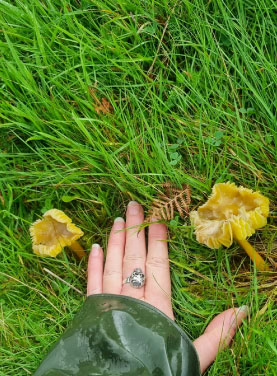



The Senedd’s Climate Change, Environment, and Infrastructure Committee (CCEIC) has released a critical report on the management of opencast coal mining in Wales, particularly focusing on Ffos-y-Fran, one of the last opencast coal mines in the region. The report describes Ffos-y-Fran as a “symbol of the system's failures”, highlighting significant shortcomings in oversight.
The CCEIC specifically calls out Merthyr Tydfil County Borough Council (MTCBC) for its inaction regarding illegal mining activities that continued after the mine's license expired in September 2022. The report questions whether MTCBC could have done more, noting the Coal Authority's concerns about the lack of a robust closure plan.
Local residents have expressed deep concerns about their treatment by public authorities. The committee emphasized the need for improved transparency and engagement, urging MTCBC to involve residents in the revised restoration plan.
Campaigner Chris Austin welcomed the report, stating it offers strong recommendations for policy changes regarding coal mine restoration. He expressed hope that the findings would lead to better outcomes for Ffos-y-Fran and prevent future issues.
We praise the CCEIC for investigating the failures that allowed illegal mining to occur without repercussions. The focus now must be on the Welsh Government and Merthyr Tydfil County Borough Council implementing the committee’s concrete recommendations to restore justice to affected communities.
Among the 26 recommendations (see below for a full list), the CCEIC calls for the Welsh Government to ensure that policies on opencast coal mining are robust and protective of local communities. The Coal Action Network advocates for a clear ban on coal mining in Wales, similar to Scotland's 2022 decision, to prevent mismanagement in the future.
The report serves as a crucial reminder of the need for accountability and proactive measures in managing natural resources in Wales.
Own emphasis

Fantastic news today, 20th June 2024. The UK Supreme Court has set a historical precedent, in overturning a previous ruling, considering the legality of approving a new oil site in Surrey.
The ground breaking decision stating that 'downstream' emissions (those released when a product is used) must be factored into decisions on whether to approve or reject planning applications for projects to extract those fossil fuels. It was a contentious decision within the Supreme Court with a 3-2 decision amongst the judges presiding over the case.
Not only will this decision stop this oil drilling from going ahead, it also sets a precedent against all UK fossil fuel extraction!
Consequently this decision should have a big impact on the upcoming West Cumbria coal mine legal challenge in the Court of Appeal 16th to 18th July.
There are 5 unique grounds that South Lakes Action on Climate Change and Friends of the Earth are appealing the decision to approve a 2.8 million tonnes a year coal mine to operate until 2049.
The reasoning for the decision against the Horse Hill project should directly impact two of these grounds against the approval of the West Cumbria coal mine. If the Court of Appeal agrees with any one ground, then the current planning permission will be overturned and the next Government will have to decided afresh whether to allow coal mining in Cumbria.
The Judges were clear in their ruling, “The whole purpose of extracting fossil fuels is to make hydrocarbons available for combustion. It can therefore be said with virtual certainty that, once oil has been extracted from the ground, the carbon contained within it will sooner or later be released into the atmosphere as carbon dioxide and so will contribute to global warming. This is true even if only the net increase in greenhouse gas emissions is considered. Leaving oil in the ground in one place does not result in a corresponding increase in production elsewhere”
The grounds in the West Cumbria coal mine legal challenge this new decision impacts challenges are:
1) errors of law concerning whether ‘downstream emissions’ caused by the coking coal were indirect significant environment effects of the proposal.
2) error of law and/ or failure to give understandable reasons concerning substitution.
Cornerstone Barristers who acted on behalf of Sarah Finch and the Weald Action Group said, "the Court noted that the direct GHG emissions over the lifetime of the project had been described as having a “negligible” effect on the climate. By contrast, the Court considered that the downstream GHG emissions (which would have been nearly two orders of magnitude greater), “could not have been dismissed as “negligible” in that way” (§82)."
The Horse Hill oil well was expected to release over 10 million tonnes of CO2. The coal proposal at West Cumbria was expected to release slightly less than that each year. West Cumbria Mining Ltd who are behind the proposed mine, claim the mine would be net zero, by paying for carbon offsetting.
To divorce the production and supply of fossil fuels from the emissions of their use is a dangerous fiction. At Coal Action Network, we know the simple truth that when fossil fuels are extracted they are used. We also know that abundance and reliability of supply encourages reliance and discourages investment in alternatives.
Five political parties have ruled out new coal extraction ahead of the election. It's clear to the majority of the UK's political leaders that limiting the supply of fossil fuels is vital to reduce their use, and they're pledging to take action on that. With the ruling in the courts today reinforcing that message. It is obvious to most people - fossil fuel producers have responsibility for the climate catastrophe created by their consumption. It's time to put to bed the absurdity of a 'climate neutral', or even 'climate-negative', coal mine as the proposed Whitehaven coal mine pretends to be.